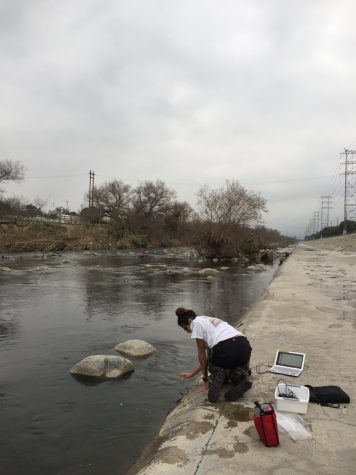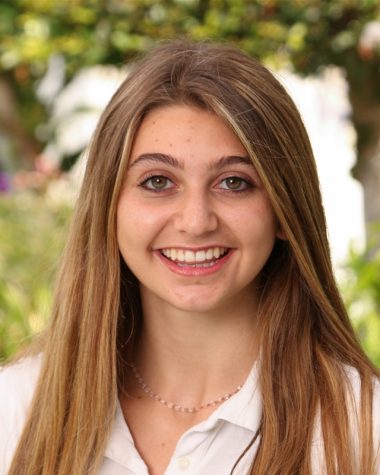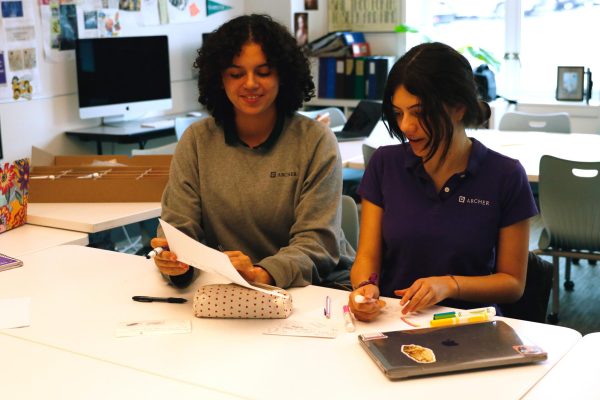Archer girls ‘follow their passions’ in science honors research class
Photo credit: Sara Weitz
Archer offers an honors research course where girls are given the opportunity to create their own research topic and work on a project throughout the year. Pictured above is the lab in which the honors research students conduct the majority of their research.
Stem cells. Chlamydia. Manure. These are just a few of the topics being studied in Archer’s year-long honors research course for upper school students.
The students develop and conduct a research project of their choosing in the science and engineering fields. The class is extremely independent, but according to Leyla Namazie, a senior currently in the class, “even though you are doing separate [projects from your peers], you are still somehow working together with each other, which is pretty cool.”
Archer provides the girls with a space to do the research along with support and resources, but it is the student’s job to come up with a final product. Every year, students in the class study something very different than their peers.
The Oracle sat down with three of the researchers to discuss their projects.
Sidney Velasquez ’19
Sidney Velasquez is currently researching the effect of certain antioxidants on the growth of mesenchymal stem cells in chick embryos. She learned that antioxidants help reduce oxidative stress, which contributes to one of the reasons cells may not grow quickly. She is focusing on cells found in ligaments like the ACL and is testing to see if it’s possible to use mesenchymal stem cells “as surgical repairmen rather than surgical replacement.”
Velasquez tore her ACL last year. She said, “ I wanted to relate [my research] to something that affected me.”
The project allows Valasquez to combine her experiences with her passion for biological science “to help benefit other people who were affected by the same thing,” she said.
Velasquez said her favorite thing about the class is “getting to work independently on something that I am actually interested in.”
“With research, you really do get to have your own agency to do the things that you want and to follow your passions,” she added.
Leyla Namazie ’17

Namazie is researching eutrophication in the LA river.
“Especially when it rains, all the chemicals and stuff that are on the street go into all the streams and rivers which eventually lead to the ocean,” she said.
She recognized that this is a big issue, and began monitoring the amount of nutrients that are coming into the water around areas that have a lot of animals. Once a week, she visits the LA river to collect samples and then takes them back to Archer. She measures pH levels, conductivity, temperature, and other variables including phosphorus and nitrate levels to see how the levels are changing after temperature changes. She collects her data in three sites along the river and chose spots nearby the zoo and horseback riding places so there is a high level of manure. Manure becomes runoff and the nutrients affect river health.
“I’m really interested in human’s impact on the environment,” Namazie said. “I definitely wanted to make [my research] more local [and] bring it back home instead of just doing something general.”
She hopes her research will “help [the LA community] realize the impact that they have on the LA river, [because it] plays a really big role in our lives.”
Liadan Solomon ’17
Liadan Solomon ‘17 is studying first stage development of a specific strain of chlamydia.
She is creating a urine dipstick test that checks for proteins that are present on the outside of the chlamydial cells. She combined biology and engineering in her project; along with the urine test, she is designing a printer that will stripe the test strips with antibodies, informing the user of her project if they test positive or negative for chlamydia. She has been working back and forth between the science lab and the IdeaLab to make this happen.
Solomon learned that this strain is the leading cause of preventable blindness in developing countries.
“Right now to test for [chlamydia] you have to get a lab blood test,” she said. “There’s no other way to do it and this makes it really hard in developing countries where they don’t have a lot of access to health care. I thought [this] would be a good way to try and make it more accessible and lower the rates.”
Solomon said that being in the research class has allowed her “to be an expert and study something that’s really specific and cool and that [she’s] interested in.”

Sara Weitz has been going to Archer since the sixth grade and joined the Oracle in 2016. She has run on the Archer cross country team for six years and...













Sharon Shohfi • May 3, 2017 at 12:01 pm
Kudos to these amazing Archer Students & to Archer staff & administration for providlng this unique program & facility.
Honors Research Class • May 5, 2017 at 11:07 am
On behalf of the Honors Research class, we love your granddaughter!
Alexandra Chang • Apr 27, 2017 at 9:40 am
Great article, Sara! Thank you for informing us about the amazing things happening in Honors Research!